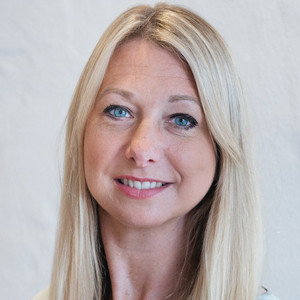Project Cargo Not Immune to Bribery, Exploitation
 By Felicity Landon
By Felicity Landon
Fraud and extortion are deep-rooted in all sectors, and project cargo is no exception. In a feature story from Issue 5 of Breakbulk Magazine, we examine how companies must set the tone from the top and be realistic about mitigating the risks of corruption throughout supply chains.
This may be the 21st century, but brown envelopes do still change hands – and, of course, many more sophisticated corruption techniques are also available. However, the risks of being exposed for any corrupt practices cannot be overstated. ‘Turning the other way’ is no longer an option. How does all this translate into the project and breakbulk cargo sector?
“You have to look at corruption as an evolving issue, but also as a never-ending issue,” said Cecilia Müller Torbrand, CEO of the Maritime Anti- Corruption Network, or MACN. “Since MACN came into existence ten years ago, corruption has become much more of a risk management issue when it comes to how companies should act. There are more expectations for companies to act in an ethical way – from investors, regulators and society.
“But the impact of corruption goes far beyond regulators and the board room. Corruption has severe implications for frontline staff, who have to deal with the threat of delays to vessels and personal safety situations. We have seafarers out there working 24/7 in remote areas – and it is often these locations where corruption is an ever-present threat for them. A lot of preparation needs to be done at a company level to truly support seafarers in their work.”
Enormous amounts of money are still going through corrupt channels, Müller Torbrand said. “Corruption remains a huge problem globally, not just in the shipping industry. However, it is very much on the radar of governments – for example, the U.S. strategy sees corruption as a key element in international security and, increasingly, foreign policy. At the same time, corruption risk is very much on the agenda for companies as well because there are huge risks and penalties involved for those exposed for or engaged in any corrupt practices.”
It is not just what you do in your own backyard, she emphasized, but also how you act with others. “Ten years ago, a company might have paid a third party to conduct business in a certain way in a high-risk market. By using a third party, it could consider itself off the hook. Those days are over. For example, you can’t be ‘compliant’ with sanctions and then bribe someone at the other end. You can’t turn the other way.”
Exposure to Corruption
Müller Torbrand said the business model of the shipping industry exposes companies to corruption risks. “This is an industry that is dealing very heavily with government interaction 24/7, is operating in different jurisdictions, often in very remote areas, is very regulated and is very dependent on third party representatives – in this case port agents, who are guiding you and know the local laws.
“In project and breakbulk shipping, seafarers or operators might not be familiar with the port they are calling and they might not even know the port agents, who are often appointed by the charterer. So this exposes the industry to corruption risks.”
Freight forwarders and/or project cargo specialists should make sure that the port agents and other business partners they employ share the same standards as the company, she said.
 “A port agent or anyone who works in the intermodal supply chain can be a fantastic resource. There are many agents who understand the standards required, share the same ethical values and provide good communication. The more the industry works as a team to counter corruption risk, the easier it is for crew, companies and the authorities. We call this Collective Action, when the industry works together. It is not just about a transaction or process; it is looking at each other as a resource for getting a vessel in and out in an ethical way.
“A port agent or anyone who works in the intermodal supply chain can be a fantastic resource. There are many agents who understand the standards required, share the same ethical values and provide good communication. The more the industry works as a team to counter corruption risk, the easier it is for crew, companies and the authorities. We call this Collective Action, when the industry works together. It is not just about a transaction or process; it is looking at each other as a resource for getting a vessel in and out in an ethical way.
“Of course, there are markets where people offer a ‘quick fix’. You must always ask for a receipt. There is no way around that. You can’t say ‘it was this country, that is the way they do things’ – it doesn’t work that way.”
Discussing the growing problem of crime in the supply chain recently, the British International Freight Association, or BIFA, said that many of its members were conducting informal risk assessments based on client, commodity and route. “This helps disrupt illicit trade to some extent but there is always a less diligent party who will accept the business,” it said in an article.
While the freight forwarder’s ability to disrupt illegal trades such as cocaine in containers of fruit or narcotics in reefer containers full of melons is limited, BIFA said there were two areas where members should consider tightening up. First, they should have a clearly defined and internally publicized incident reporting process, led by a senior manager, and procedures implemented to report suspicious movements.
Second, all freight forwarders should consider their recruitment policies, particularly when it comes to taking up references, “to ensure that new employees are actually who they say they are and to identify any unexplained gaps in their employment history. Having an operator on the inside is a great asset to criminal gangs.”
Increasing Awareness
 Peregrine Storrs-Fox, risk management director at the TT Club (which recently joined MACN), said that increasing awareness of corruption is hugely important. “It is at all levels – brown envelopes to make things happen, but also where warlords and syndicates are very active and very successfully corrupting people in the supply chain. Where we can be aware of it and call it out and promote better procedures, we will absolutely call it out.”
Peregrine Storrs-Fox, risk management director at the TT Club (which recently joined MACN), said that increasing awareness of corruption is hugely important. “It is at all levels – brown envelopes to make things happen, but also where warlords and syndicates are very active and very successfully corrupting people in the supply chain. Where we can be aware of it and call it out and promote better procedures, we will absolutely call it out.”
At the ‘low level’, TT has been focusing on insecure parking. “The truck driver has every incentive not to go into secure parking – maybe they have been given cash to pay for it, but they don’t go there and they keep that cash, so there’s a moral hazard at that level.
"All the way through the industry there are opportunities for money to be misappropriated. As an insurer, we wouldn’t generally be hearing about this sort of thing because it wouldn’t be an insured risk; we hear about it through ad hoc conversations. Being a mutual insurer, we try to be supportive of an operator, even if there isn’t a claim that can be paid under cover. On narcotics, wildlife trafficking, general theft, etc., we try to raise awareness and emphasize the things that can be put in place to improve the situation.”
Müller Torbrand said that in the project cargo and breakbulk sector, there is added risk because vessels are not calling frequently at the same ports. “They may not know where the next port of call is, and that has implications around their ability to prepare for threats and illicit demands. Do they know what the situation is in the next port? Can they prepare? There is less opportunity to prepare in these trades compared with containers on regular schedules. Many ports are remote, but when handling project cargo, vessels are often calling at ports that are even more isolated – further away from immediate help.”
Robust Policies
Freight forwarder and project logistics specialist deugro said it has robust policies and procedures in place to prevent corruption, outlined in a ‘Code of Ethics and Compliance and Anti-Corruption Standard Operating Procedures’. There is a strong focus on training, risk assessments and due diligence, and reporting.
“Our employees are regularly trained on anti-bribery and anticorruption through our compulsory e-learning training initiatives and various face-to-face training workshops,” said a spokesperson.
deugro said its ISO 37001 certification “symbolizes our commitment to protect our shareholders, our customers and our business partners from the hazards and risks related to bribery.” Measures implemented to comply with ISO 37001 have included carrying out regular bribery risk assessments and due diligence on deugro’s projects and business associates. “Our risk assessments help us to manage and mitigate any potential risks by identifying our risks and putting relevant processes in place,” said the spokesperson. “Our due diligence processes help us to assess and know our business partners and identify any potential or actual conflicts of interests.”
deugro group has its own whistleblowing hotline SpeakUp! – accessed online, it is open to all employees and stakeholders, including clients and subcontractors. “We depend greatly on our stakeholders to ‘SpeakUp!’ and report any near-misses, incidents or other concerns they might have, whether related to bribery and corruption or otherwise. Our stakeholders have the option to report their concerns anonymously. Our comprehensive investigations and disciplinary actions procedure explain how we handle and investigate reports received.”
Importance of Collective Action
MACN was set up to focus on collective action in the maritime value chain, Müller Torbrand said. “Each party has a role to play – flag, insurance, crewing agencies, ship management, charterers, agents, class, and so on. No one has the full responsibility. They all need to work together to reduce the risk, so that when challenged they are all standing according to the same standards, behind the captain of the vessel.”
In some business transactions it may feel easier to point fingers at others rather than think ‘I am accountable’, she said. “It is about thinking – how do I make sure my business partner acts to the same standards as I want my company to operate? That is a more complex approach but definitely the right one.”
As part of this process, MACN works ‘in collaboration’ with governments. “We don’t want to point the finger because this is sensitive. We want governments as well as the private sector to come to the table and work on solutions with us. The reason why we have been able to work in some of the high-risk jurisdictions is because we can talk to governments about the risks of corruption, the consequences for trade and why developing solutions is so important. Corruption has negative consequences, but what is the incentive for that government to do something about it?”
She would like to see more effective enforcement of anti-corruption legislation across industries – “seeing companies being prosecuted would scare others into action” – and also said there should be more focus on the (unintended) implications and potential loopholes of new legislation.
The impact on companies that find themselves in the middle of a case of corruption can be considerable – trade disruption and delays, financial loss and huge reputational risk. And of course, corruption is an illegal activity that can provide a pathway to other types of crime.
Finally, she emphasized, everyone must recognize that there is corruption in the maritime trade. “It’s everywhere, so why shouldn’t it be in shipping? When looking at trading into high-risk areas, companies should ask themselves: are we strong enough, do we have enough resources to handle this, can we support the people who are facing these demands, is there a strong policy from the CEO? If yes, we can go there.
“We have a long way to eliminate corruption, but we can make sure our people are trained, make sure they can escalate concerns internally if faced with issues, ensure they know what they can do, and try to lift the responsibility from the individual. There is a lot you can do internally to be better prepared by building that anti-corruption program and then working together in collective actions – we become stronger.”
Breakbulk Americas 2023 is happening on 26-28 September at the George R. Brown Convention Center in Houston, Texas.
